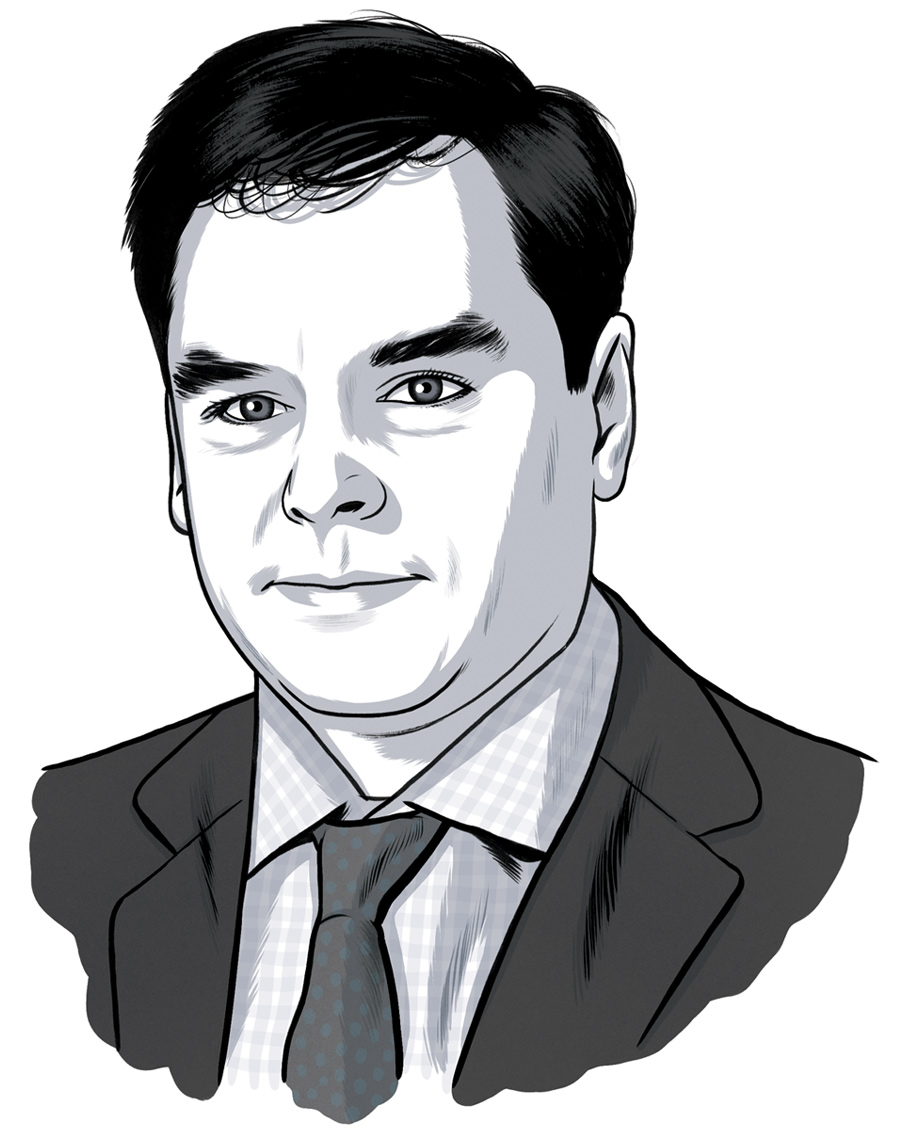

Illustration: Joel Kimmel
Chris Retzler ’93
‘Don’t Bet Against the U.S.’
by Matt Zencey
Since 2008, Chris Retzler ’93 has managed investment portfolios at Needham Asset Management. In early April, The Wall Street Journal cited his fund’s strong gains despite the market’s COVID-19-induced crash and called him “Stock Funds’ No. 1 manager” for the previous 12 months. At Bucknell, Retzler played varsity water polo; after graduating with a dual major in Latin American studies and economics, he was a Fulbright scholar in Bolivia. For the last eight years, he has served on the Bucknell University Alumni Association board.
Q: You’ve won huge accolades for how well your funds have performed despite the global economic shock inflicted by the COVID-19 pandemic. What’s your secret?
Ours is a contrarian approach to investing. You have to remain stable and true to your investment disciplines over a long period of time. You have to attempt to minimize the emotional aspect of investing, but at the same time, you need to be flexible enough to redirect when your indicators are telling you things have changed substantially. We’ve been doing this for many years. I have tremendous guidance from individuals that I work with, one of whom is George Needham ’65.
Q: This spring, financial markets rebounded from their free fall at the start of the pandemic, even though we had 30 million people thrown out of work and no vaccine, no instant testing and no proven treatment for the COVID-19 virus. Why was that?
Similar to the 2008 crisis, our federal government and central banks globally reacted quickly to bring aid to the financial markets, inflating asset prices while the broader economic stimulus was just beginning. Financial markets can rebound faster than the real economy. They are not in sync with Main Street America.
We will not return quickly to the employment levels seen at the end of 2019. There is substantial damage done to the economy that will take time to work through. But long term, I don’t bet against the United States. I think the country will come out of this recession stronger, as we did in 2008, but it will take time.
Q: As an investor, you look for shareholder value. There’s a school of economic thought that says shareholder value is all that corporations should care about — no need to worry about other stakeholders, like employees, customers, the community. What do you think?
There is growing interest in “ESG” investing — looking at a corporation’s record on the environment, social responsibility and governance. Clearly there are positive trends in corporations that are putting more value on being good corporate citizens, and investors should take that into consideration. The pandemic has highlighted the importance of being a good member of the community, whether that’s socially or commercially. It’s encouraging to see essential employees highlighted for their contributions.
Q: How has your Bucknell education informed your career as an investment manager?
I had relationships with professors who recognized my strengths, which led me to independent studies and studying abroad. The critical thinking I learned through those experiences has been incredibly important as I invest in a wide variety of industries. The social skills I learned at Bucknell have also been incredibly valuable when interacting with company management teams.
Q: Fast forward to the year 2050. You’ve retired, and you’re being interviewed about your life and career. What’s the main thing you would say?
I’d want to be remembered as someone of high integrity and a strong reputation, and as a good community citizen, somebody who was trustworthy, someone who was giving back and didn’t forget where I came from, like [Home Depot co-founder] Ken Langone ’57. You have success, and you share that success, whether it’s financially or by giving your time.